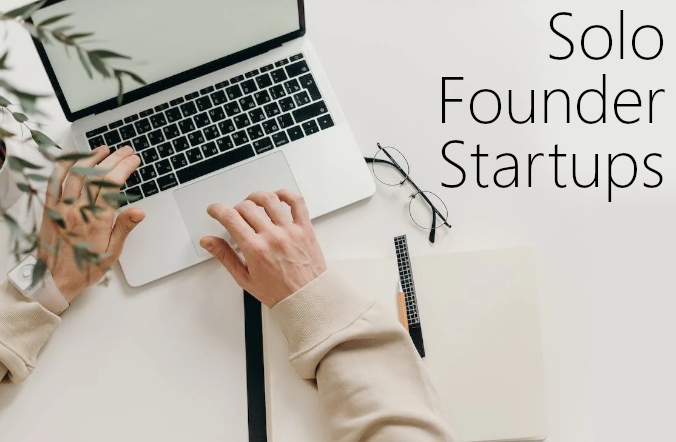
Sections in this article:
Examples of Famous Solo-Founder Startups:
Less well-known Solo-Founder Startups.
Microbrands Founded By Individuals
The Challenges and Benefits of Solo-Founder Startups
How Solo Founders Can Succeed in Business
UnconstrainedTime as a Solo Founder Startup.
Introduction
This article goes into the details of some very successful solo-founder startups (including watch brands) and the underlying causes of their exceptional results.
We start with famous examples of businesses started by one person, then examine some less well-known companies started by an individual, looking at the reasons for the success of each one.
We also look at watch companies founded by one person, first some of the big names, then some of the microbrands.
Then we look at the challenges and benefits of solo-founder startups, and factors behind how such businesses can succeed.
At the end of the article, we’ll also have a brief look at UnconstrainedTime, why we’re a solo founder startup (with a great team) and how that aligns so well with our core concepts.
Examples of Famous Solo-Founder Startups:
We start with some well-known businesses started by just one person . . .

. . . as most people know, was founded by Jeff Bezos in his garage in 1994.
He quit his Wall Street job after recognizing the huge potential of the internet, and started by selling books because there were so many different books available, so an online store could stock a much wider product range than any physical book shop. Also, each book is the same all over the world, and you don’t have to touch a book before buying because it’s the content that matters.
After a great beginning as a solo-founder startup, he expanded internationally by acquiring book sellers in other countries.
As a startup, he went against the usual rule of not showing competitor’s products alongside your own . . . he allowed 3rd party sellers on his website. He chose to learn from his competitors rather than try to block them. In the early years, other companies tried to compete by selling at a lower price, but Amazon beat them, mainly due to the trust they gained from exceptional customer service.
His management style allowed him to realize that the person closest to the problem was usually the best person to solve it, so lots of communication indicated less than ideal functioning in a business.
He also made good use of problems his business was experiencing. For example, he observed that his teams didn’t have enough computer servers to test all the ideas that were being generated. So he created Amazon’s AWS cloud servers, to handle this problem for his own company and give the same opportunity to other companies who wanted it, allowing customers to pay only for what they needed at the time. He also chose small profit margins (even losing money initially) to discourage competition, with excellent results.
He also allows his leaders to disagree if they have reason to do so.
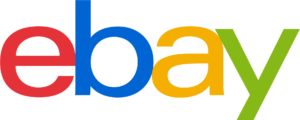
. . . begun by solo-founder Pierre Omidyar in 1995, was the first online auction site allowing person-to-person transactions.
It is said that eBay was just a hobby until his internet service provider said he needed to upgrade his server use because of the large amounts of web traffic he was getting.
It’s success was facilitated by how easy it was to use with no experience, and it was one of the rare companies which showed a profit from the beginning.
The company acquired PayPal to have more control over the payment system a lot of its customers were using.
Ebay has changed the way people trade collectibles, having a profound affect on related markets. While his use of non-technical managers might have contributed different areas of expertise, experts believe that eBay might have been even more successful with better use of the data they generated, and by using some managers with relevant technical expertise.

. . . was a well-known social networking site which began well as a solo-founder startup.
It succeeded initially due to the emphasis on creative, cool stuff, as well as thriving on anonymity.
While getting off to a good start, Tumblr then went through a series of different owners including Yahoo and Verizon, had problems with accounts which didn’t reveal true identities, and use of adult material (which also had problems due to being flagged inaccurately when the owners tried to ban it), and its use decreased dramatically. It also failed to become profitable.
It seems to be growing again these days.

. . . facilitates classified ads, local content and discussion forums.
Started by Craig Newmark in 1995, after having seen other friendly, social, and trusting online communities, it was originally for local listings, but he soon found that people were using it for seeking employment as well. It grew rapidly at first, then steadily, focusing on long-term growth rather than trying to grow as rapidly as possible in the short-term, which is a common mistake.
The fact that it was free for most users grew a big and loyal user base. Being organized by city helped it grow as a local service. It worked well, is well organized and easy to use. Its bootstrapped approach to growth has helped it to be independent and focus on what matters most.
Oprah Winfrey

. . . began as a news co-anchor, where her emotional delivery resulted in being her moved to a position as a talk-show host which was a better match, although she regarded that as a demotion, considering the news to be more important.
She helped that talk-show improve its ratings, realized that being a talk show host was the right thing for her to be doing, then founded her own production company.
She is said to have been instrumental in the creation of a more intimate, confessional form of media communication. Her endorsement of controversial concepts, emotional focus, and promoting a confessional culture have been criticized, but she has been praised for helping others and overcoming the challenges of her upbringing.
Reasons for her success included taking risks, being unafraid to fail, being self-motivated and determined, and inspiring others. While she initially focused on increasing her own popularity, doing what got the best ratings, after becoming successful enough she exercised more choice in what she wanted to be and what she wanted to be involved in.
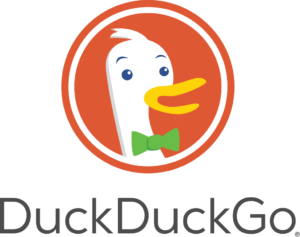
. . . offers products including a search engine which help internet users maintain their privacy and anonymity and to avoid the filter bubble of personalized search results.
It was a solo-founder startup by Gabriel Weinberg and launched in 2008. One of the investors stated “We invested in DuckDuckGo because we became convinced that it was not only possible to change the basis of competition in search, it was time to do it.”
Its search results are not full of sponsored listings and Google’s own products taking priority, in addition to it not tracking you and sharing your data with advertisers as other search engines do. These benefits are resulting in it increasing n popularity, since it confers those benefits and works well for most searches (with the exception of very specific searches).
Other reasons for their success as a business include testing their concepts on real customers and asking users how they can improve.

. . . specializes in spacecraft manufacture and launch services.
It was started by Elon Musk in 2002 with the aim of reducing the cost of a mission to Mars. It is the first company to reuse boosters.
It succeeds by applying a modular approach, uses commercial off-the-shelf components where possible, seeks creative and innovative solutions, and conducts rigorous testing and risk assessment. It also uses data engineering to succeed as well as 3D printing and vertical integration (controlling all aspects of design, development and production itself), as well as forming partnerships with other companies including NASA.
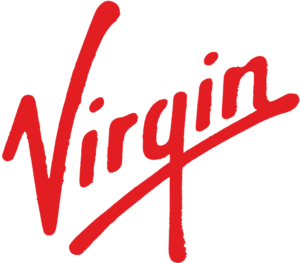
. . . founded by well-known serial entrepreneur, Richard Branson, starting with Virgin Records in 1972, named by one of his employees because they were all new at business.
He added the airline Virgin Atlantic in the ’80’s, and grew the brand with other businesses including Virgin Galactic, a spaceflight company.
Branson was knighted for “services to entrepreneurship”, in 2000, and Virgin is one of the best-known British Brands.
He commented, about the fact that his record stores sold records at a lower price than more established brand, “There is no point in starting your own business unless you do it out of a sense of frustration.”
His businesses are known for being able to implement changes more rapidly than more traditional brands. They are known for entrepreneurship, innovation and market disruption as well as challenging the status quo and shaking up markets, and say they do this “while championing people and the planet”. Their company values include relevance, insatiable curiosity and honesty.
Richard Branson is known for hard work, daredevil ideas and originality.
One of their success strategies is corporate parenting, meaning that each new business in their group has the Virgin’s brand name, management style, values, and access to the Virgin’s resources and support.
Less well-known Solo-Founder Startups.
There are many solo-founder companies that have emerged and thrived. These enterprises, led by visionary individuals, have disrupted industries, capitalized on innovative ideas, and displayed resilience in the face of challenges.
Here are examples of some lesser-known solo-founder companies and the reasons behind their remarkable success stories:

. . . a solo-founder startup by Matt Barnard in 2014, Plenty is an agritech company revolutionizing indoor farming.
Barnard’s vision was to address food scarcity issues by using vertical farming methods.
His background in biophysics enabled him to combine technology and agriculture, creating a sustainable approach to food production. His expertise, combined with a passion for solving global issues, has driven Plenty’s success in creating efficient, high-yield farms that produce nutritious food using minimal resources.

. . . founded by Yvon Chouinard, a climber and environmentalist, in 1973.
His vision was to build a company that not only produced high-quality outdoor gear but also prioritized environmental sustainability.
Chouinard’s commitment to ethical business practices, including responsible sourcing and environmental activism, has set Patagonia apart from its competitors. His dedication to environmental causes resonated with consumers, supporting the company’s success and establishing it as a leader in sustainable fashion.

. . . founded by Sir James Dyson in 1991, introducing innovative vacuum cleaner technology to the market.
His frustration with conventional vacuum cleaners led him to develop cyclonic separation technology, revolutionizing the industry.
Dyson’s relentless pursuit of engineering excellence and a commitment to innovation have propelled the company’s success. His willingness to invest heavily in research and development, coupled with a dedication to quality, positioned Dyson as a trailblazer in several forms of household technology.

. . . launched by Emily Weiss in 2014, transforming the beauty industry by focusing on customer engagement and inclusivity.
Weiss, with her beauty blog background, leveraged consumer insights to create skincare and makeup products that resonated with customers. Her approach of directly engaging with consumers through social media and collecting feedback has been pivotal to Glossier’s success.
The brand’s community-driven approach and emphasis on simplicity and authenticity have cultivated a loyal customer base.

. . . a solo-founder startup by Stewart Butterfield in 2013, began with the aim of improving communication and collaboration in workplaces.
Butterfield’s prior experience in gaming and technology informed the creation of Slack, offering a user-friendly messaging platform for teams. His emphasis on simplifying communication and enhancing productivity has propelled Slack’s success, making it a widely adopted tool for businesses around the world.
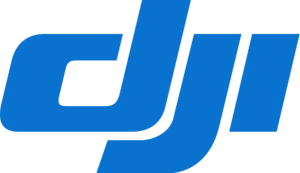
. . . founded by Frank Wang in China in 2006, is known for making easy-to-fly drones.
Their success factors include low cost, access to skilled labor, and responsiveness to market needs. Their drones are high quality and dependable as well as being cost-effective and being known as easy to use.

. . . founded by Barry Silbert in 2015, builds and supports bitcoin and blockchain companies.
The fact that cryptocurrency is protected from problems associated with government control helps them succeed. They own an impressive array of successful businesses which receive the benefits of being allied as a group.
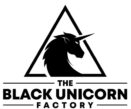
. . . founded in LA, in 2020, by Johnny Stewart, specializes in transforming relatively small businesses into significant public unicorns.
One of the things they do is helping minority-owned businesses raise capital, helping transform African American startups into successful businesses.

. . . a solo-founder startup by David Ellison in 2010, in California, creates digital media, movie and TV, and is known for financing and producing ambitious films spanning all genres, including action-adventure and science fiction.
Factors in their success include independence, versatility and a multi-platform approach. They also have deep relationships with content, talent and tech partners.
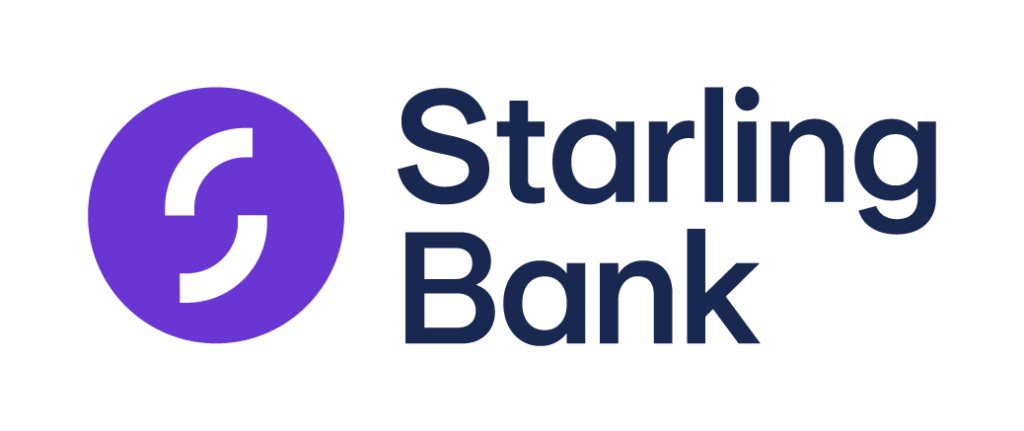
. . . founded, solo, by Anne Boden in the UK in 2014, is an online bank only available via smartphone.
They embrace innovation and changes in technology, and pay better interest rates than most high-street banks. They are unusual in being a fintech which has achieved a sustainable business model.

. . . founded by David Hsu in California in 2017, provides a fast method for businesses to create their own software tools without needing a programmer.
They help businesses become more efficient by allowing them to rapidly, easily and cost-effectively create the custom software tools they need to process their data.

. . . founded by Sashi Narahari in Texas in 2006, provides Artificial Intelligence to the finance sector.
They help businesses in that space reduce the effort needed to get things done, allowing them to focus on strategy and customer relationships.

. . . a great solo-founder startup by Tope Awotona, beginning in the US in 2013, make a simple to use online booking system for appointments, meetings and calls.
They have focused on providing everything that’s needed by their customers, including lots of great features, while still remaining easy to use.

. . . founded by Jason F. VandeBoom in Chicago, 2003, make are a popular email list management system for businesses.
They offer advanced automation tools as well as analytical and reporting systems, and help businesses make data-driven decisions to optimize and build more effective campaigns

. . . founded by Mate Rimac in Croatia in 2009, make advanced electric hypercars.
Their diversification of business interests helps them succeed. As well as their own cars, they also make battery packs, drivetrain systems, and vehicles for other businesses.

. . . founded by one man: Martin Roscheisen in California in 2012, use innovative technology to make diamonds which are purer than some other types of synthetic diamonds.
Their business also has a successful jewelry angle.

. . . founded by Rachel Drori in New York in 2014, offer subscription-based delivery of ready-prepared healthy vegan frozen foods.
They make it easy to eat healthy food that tastes good and is more sustainable. They use algorithmic flavor preferences to give customers what they desire.
Solo-founder watch brands.
Alongside the evolution of the watch, the watchmaking industry has been shaped by numerous visionary individuals whose passion and determination led them to found successful watch companies. Among these pioneers are several notable figures who started their ventures solo, creating iconic brands that have made enduring marks on horology. From humble beginnings to global recognition, these companies are testaments to the innovation, craftsmanship, and entrepreneurial spirit of their founders.
From Hans Wilsdorf’s pioneering spirit at Rolex to Rolf Schnyder’s revitalization of Ulysse Nardin and François-Paul Journe’s commitment to artisanal craftsmanship at F.P. Journe, these watch brand founders have left an indelible mark on the watchmaking landscape.
Their stories exemplify how individual passion, expertise, and a clear vision can lead to the creation of enduring brands that transcend time. These watch companies continue to inspire and set new standards in the world of horology, showcasing the lasting legacy of their visionary founders.
The development and evolution of watch logos is also fascinating, with our blog post on watch logos showcasing some of the brands mentioned below.
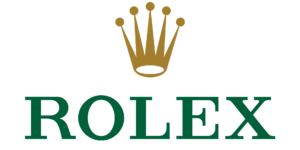
Hans Wilsdorf founded Rolex in 1905, in London.
Initially, the company focused on assembling watches using movements sourced from Swiss suppliers. However, Wilsdorf’s vision for precision, innovation, and elegance led Rolex to become a leader in the watchmaking industry.

The company introduced innovations including the first waterproof wristwatch, the Oyster, in 1926, making them a revolutionary watch design. Wilsdorf’s relentless pursuit of excellence cemented Rolex’s reputation for quality and innovation, making it a symbol of luxury and reliability worldwide.
They choose to make relatively few watches which often creating long waiting lists, boosting their brand desirability. The founder also promoted the brand exceptionally well from the beginning, including emphasizing its presence at major sporting events. The brand sticks to what they are good at, focusing on long-term reliability and reputation.

Rolf Schnyder revived the traditional Swiss watchmaker Ulysse Nardin in the 1980s.
The company had a rich heritage but faced financial difficulties due to the Quartz Crisis.
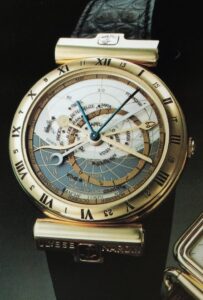
With a passion for horology and a commitment to preserving artisanal craftsmanship, Schnyder steered the company towards success. Ulysse Nardin gained recognition for its unusually precise marine chronometers and groundbreaking innovations, such as the introduction of silicon escapements in mechanical movements.
Schnyder’s leadership revived Ulysse Nardin’s legacy, establishing it as a respected brand renowned for its technical expertise and distinctive designs. One of their watches is used as an example of how practicalities shaped watch aesthetics.

François-Paul Journe is another remarkable individual watvhmaker whose eponymous brand, F.P. Journe, has garnered acclaim for its exceptional craftsmanship and technical ingenuity.
Journe, a self-taught watchmaker, founded his company in 1999 after gaining recognition for his innovative complications and mastery of haute horlogerie. Known for creating limited-edition timepieces entirely crafted by hand, F.P. Journe combines traditional watchmaking techniques with contemporary designs.
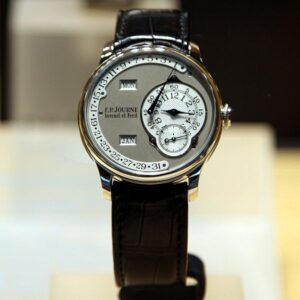
Journe’s dedication to horological excellence and uncompromising standards has earned his brand a devoted following among collectors and enthusiasts. There is an exceptional examples of his watchmaking in our article on unusual watches.
Microbrands Founded By Individuals
Microbrand watch companies founded by individuals have significantly contributed to the innovation and diversity of options available from today’s watch industry. These independent watchmakers create timepieces that often challenge conventions and offer unique perspectives on design, quality, and storytelling.
Their emphasis on craftsmanship, unique designs, and often limited production runs cater to collectors and enthusiasts seeking exclusivity and a deeper connection with their watches.
For a very unique new microbrand, see the section on our own brand as a solo-founder startup, below.

Halios was founded by Jason Lim in Vancouver, Canada.
They gained a dedicated following by producing limited batches of thoughtfully designed watches known for their high-quality materials and functional aesthetics.
Lim’s attention to detail and commitment to delivering exceptional value in each timepiece attracted enthusiasts seeking distinctive designs with professional-grade specifications.
Halios watches, often inspired by maritime themes, epitomize the ethos of microbrand craftsmanship, offering a blend of innovation and affordability that resonates with collectors and watch aficionados.

Nomos Glashütte stands out among microbrands for its minimalist designs and precision engineering. Roland Schwertner founded Nomos in Glashütte, Germany, in 1990, with a vision to create high-quality mechanical timepieces infused with Bauhaus-inspired aesthetics.
Their watches are recognized for their clean dials, slender profiles, and in-house movements, showcasing Schwertner’s dedication to preserving traditional watchmaking while infusing modern design sensibilities. The brand’s commitment to autonomy in movement production and emphasis on accessible luxury have propelled Nomos into the ranks of respected watchmakers globally. They are one of the featured watches in my blog post on watch design inspirations.

Farer was founded by Jono Holt in the United Kingdom.
Farer differentiates itself by combining vibrant colors, retro designs, and Swiss-made movements, offering distinctive and accessible watches that evoke a sense of adventure. Holt’s vision for Farer was to create timepieces that celebrate travel, exploration, and individuality.
The brand’s attention to detail, use of high-quality materials, and limited production runs have garnered praise from watch enthusiasts seeking unique, characterful designs.

Dan Henry stands out as a microbrand founded by, unsurprisingly, Dan Henry, a passionate watch collector turned creator.
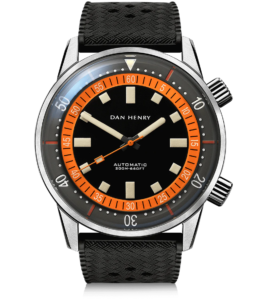
His brand specializes in affordable vintage-inspired watches that pay homage to iconic timepieces of the past. Each Dan Henry watch tells a story, drawing inspiration from specific historical eras or significant moments in horological history.
The brand’s dedication to delivering exceptional value, historical accuracy, and attention to detail has earned it a dedicated following among watch aficionados seeking affordable yet meticulously crafted timepieces.
The Challenges and Benefits of Solo-Founder Startups
Challenges
Businesses founded by one person are more vulnerable in the early stages because everything depends on the founder alone.
There can be a lack of someone else to bounce ideas off.

There’s also less time to get things done, because there’s only one person doing a lot of the work.
Investors tend to prefer teams, particularly at pre-seed and seed stages of a new start-up.
There are a lot of different areas of responsibility that one person has to do successfully, in order for the business to be effective.
And many solo founders suffer from loneliness, which is a common and significant problem for employees working on their own, but even more so for founders who are typically going into the unknown in many ways and facing significant challenges, especially at the early stages.
Benefits
One of the most significant benefits of being a solo founder is that there won’t be any disagreements about decisions. According to Harvard Business School Professor Noam Wasserman, 65% of startups fail because of conflict between co-founders.
It’s also much faster for a solo founder startup to make decisions and to take effective action.
Also, with a business founded by one person, there’s no compromise on vision or implementation.
A solo founder can often have more motivation, and will receive more acclaim when the business succeeds. The danger that comes with that is doing things to satisfy one’s ego. In my opinion it is better to let the business be its own thing, giving it space to evolve, separate from the founder as a person, which can be challenging.
This article on startup funding points to data from CrunchBase which shows that single founder startups are the most common when it comes to raising greater than $10 million and having a successful exit.
A study based on a survey of creators of thousands of Kickstarter projects between 2009 and 2015, appears to show that solo founders are 2.6 times more likely to have success with a for-profit venture than three or more co-founders. But they do less well at non-profit. Other statistics are less clear on whether solo founded businesses are more successful or not.
How Solo Founders Can Succeed in Business
For their company to succeed, most solo founders will need an effective support network to provide them with the expertise, feedback, and emotional support they need.

Most solo founded startups had significant contributions from others in various areas of the business.
It is important for a solo founder to understand themselves well, and to know clearly see the motivations behind their decision making.
They need to learn how to get things done effectively and efficiently, such as by chunking down bigger goals into small action goals and prioritizing well.
Successful solo founders need to be independent and have a strong vision and motivation. They need to be adaptable, and learn how to outsource areas of the business effectively.
Some business advisors recommend outsourcing everything you can. They say that your most valuable contribution is all the things you’re best at, so you really shouldn’t do anything that other people can do too as well as or better than you can.
UnconstrainedTime as a Solo Founder Startup.
I’d say that I am very individual (although I also have some great relationships). Of course, that’s a relatively common thing to say, these days . . . if the concepts behind that are of interest to you, have a look at our blog post on Uniqueness and how it has changed over time.
When I first went to University I was studying electronic engineering (aiming towards a career in electronic music), and as part of the course we studied a brief over-view of the history of business.
One of the concepts taught in that course was that people used to work in the fields, doing what they knew was essential to produce food for their family to eat. Then, with the industrial revolution, most people were working on production-lines, making one tiny part of something much bigger, designed by someone else and managed by someone else.
I remember being appalled when I found out that a lot of the workers on a production-line had no idea what the small part they were making, was even a part of. That made me realize how much I did not want to be doing anything like that!
I saw that what I really wanted to do was to be the sole creator of things made expressing my own personal explorations. So I quit the course in electronic engineering and began my journey in the creative arts. Here’s more details about my journey as an artist.
My background and experience in fine art and contemporary music led me to the creation of UnconstrainedTime watches, loving forming my own very unique and individual concepts and seeing them rendered in 3D, then really appreciating the positive feedback from others who love such individual creations, too.
I am now bootstrapping UnconstrainedTime as a microbrand startup, enjoying being a solo founder with help from lots of experts, including Evan, our watch and jewelry expert, as well as our very experienced eCommerce advisor, and getting great answers to lots of questions on FaceBook Groups and elsewhere.
I considered applying to investors to obtain funding for this project, but was happy to find ways to go ahead more rapidly without needing to take the time to go through the long process of attempting to obtain investment in a space unfairly biased against solo entrepreneurs, and relieved to be able to develop the business without needing a co-founder.
One of the challenges I am experiencing, as mentioned above, is finding the time to get all the necessary tasks done, while bootstrapping everything myself.
For anyone else considering being a solo founder, I’d say that there are lots of ways to get advice from experts, and support from others in similar situations, such as from FaceBook Groups and forums, as well as paid programs.
How being a solo founder aligns with the core concepts of UnconstrainedTime
As I said above, creating something unique, as a personal exploration, is something I am very passionate about.
It also fits the core concepts of UnconstrainedTime, which is very much what can be called conceptual art jewelry which means unique pieces created by an individual as a personal exploration relating to (and valued as) art, rather than fine jewelry which is typically created by committee, relates to mechanical design for mass-production, and is valued because of the materials it is made from (and the brand).
To put it simply, fine art is almost always done by one person, and a mass-produced copy can never be a work of art in the way that the original is.
Not that UnconstrainedTime is intended as a one-person brand. We have an open design competition, where anyone can submit their design ideas. If they fit our aesthetic range, we will tell the designer how to get high quality 3D renders done, and we will show the results on our website. We tell the designer how they can help promote their UnconstrainedTime design(s), and if they sell, the designer, of course, receives a commission.
And we welcome established creators, whether art jewelers, fine artists, sculptors or ceramicists, to create one-off UnconstrainedTime watches in collaboration with us.
Our brand concept facilitates unique creations by individuals, with expert support.
Being a solo founder has enabled me to focus on strong uncompromising aesthetics and implementation, while also having access to expert advice and guidance in areas where I need it.
I am sure my focus on prioritizing aesthetics, is obvious in my watch creations:
Don’t miss our 2024 launch!
. . . make sure you subscribe to our priority list for notifications
Do you think that a solo founder startup is an overall advantage, or a disadvantage? Let us know what you think, in the comments below or on our social media.
Any company logos, other than our own, used on our website are not owned by us, and do not imply any relationship with that brand.





Leave a Reply